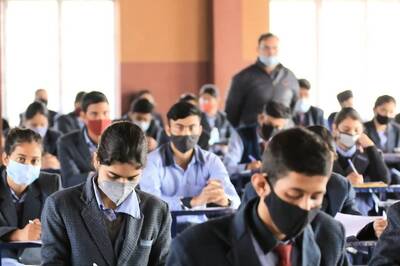
views
As we observe World No Tobacco Day on May 31, it’s crucial to recognize not only the harmful effects of active smoking but also the dangers of passive smoking, also known as secondhand smoke. This occurs when non-smokers inhale smoke exhaled by smokers or from the burning end of cigarettes, cigars, or pipes. While we often say our environment shapes us, this is particularly true in the case of smoking. Non-smokers who breathe in this toxic mix face the same health risks as active smokers.
Saurabh Bothra, CEO & Certified Yoga Instructor, Habuild, emphasizes, “There is no safe level of exposure to secondhand smoke. It can lead to numerous health problems, including respiratory infections like bronchitis and pneumonia, lung cancer, heart disease, or Chronic Obstructive Pulmonary Disease. Studies show that prolonged exposure to secondhand smoke can cause significant lung damage, leading to decreased lung function even in children and the elderly.”
Despite these dangers, there are habits you can adopt to help restore and maintain lung health if you are a passive smoker:
- Avoid Secondhand SmokeThe best way to protect your lungs is to avoid places where smoking occurs. Encourage friends, family, or colleagues to smoke away from you and avoid areas where smoking is common.
- Spend Time in NatureIf you can’t avoid exposure, spend one to two hours daily in nature. Gardens, lakesides, and open grounds provide fresh air to help counteract smoke exposure on a daily basis.
- Practice Deep BreathingWhile in nature, practice deep breathing exercises to increase lung capacity and clear out toxins. Techniques like diaphragmatic breathing, kapalbhati kriya, and other pranayama methods are effective.
- Use Air PurifiersAt home, use air purifiers to reduce secondhand smoke and other pollutants. Encourage their use in office areas as well.
- Maintain a Healthy DietEating a diet rich in antioxidants can help combat the damage caused by secondhand smoke. Foods like berries, citrus fruits, green leafy vegetables, nuts, and seeds are excellent choices.
- Exercise RegularlyPhysical activity helps improve lung capacity and function. Walking, swimming, and yoga are particularly beneficial.
Dr Kuldeep Kumar Grover, Head of Critical Care & Pulmonology, CK Birla Hospital, Gurgaon, advises that establishing a smoke-free environment is essential. Ensure your car and home are smoke-free, and if someone needs to smoke, request they do so outside. Regular exercise strengthens your heart and lungs. Walking, swimming, or cycling for at least half an hour on most days is recommended. A diet high in fruits, vegetables, whole grains, lean meats, and antioxidants promotes lung health and guards against damage. Maintaining a healthy weight is crucial to prevent respiratory problems associated with obesity and to decrease the stress on your lungs.
Including deep breathing exercises in your routine can enhance lung function and capacity. Diaphragmatic and pursed-lip breathing are particularly helpful. Avoid dangerous substances, ventilate your home, and utilize air purifiers to maintain clean indoor air. Regular health examinations are essential for tracking lung health and quickly treating any issues. Vaccinations, such as the flu shot and the pneumonia vaccine, are also crucial for preventing respiratory infections that could damage lung health.
Dr. Pratibha Dogra, Senior Consultant, Department of Pulmonology, Marengo Asia Hospitals, Gurugram, stresses that if you find yourself regularly exposed to secondhand smoke, it is imperative to take proactive steps to maintain the health of your lungs. Limit your exposure by avoiding areas where smoking is prevalent. If someone smokes in your home, ensure they do it outside and away from other people. Creating nonsmoking zones around you and avoiding social situations where smoking is common are also advised.
Adopt healthy practices to maintain lung health. Regular exercise is essential; aim for 40 to 45 minutes of moderate exercise, such as cycling, swimming, or walking. Your heart and lungs will get stronger. Deep breathing techniques can improve lung function and capacity.
A balanced diet high in fruits, vegetables, whole grains, and lean meats supports lung health. Foods high in antioxidants, like nuts, spinach, and berries, can help shield your lungs from harm. Staying hydrated by consuming plenty of water is also crucial.
Maintaining clean air in your home can greatly impact lung health. Use air purifiers and avoid products that emit harmful chemicals. Regularly ventilate your living spaces to maintain good air quality.
Frequent health checks are essential for monitoring lung health and identifying potential problems early. Ultimately, limiting your exposure to passive smoking is the best defense against its damaging effects on your lungs. Prevention is the best course of action when it comes to protecting your lungs from secondhand smoke.
By adopting these habits and maintaining healthy practices, you can significantly lessen the negative effects of passive smoking and promote healthier lungs. Today, let’s commit to staying away from any tobacco addictions and take charge of our health together.















Comments
0 comment